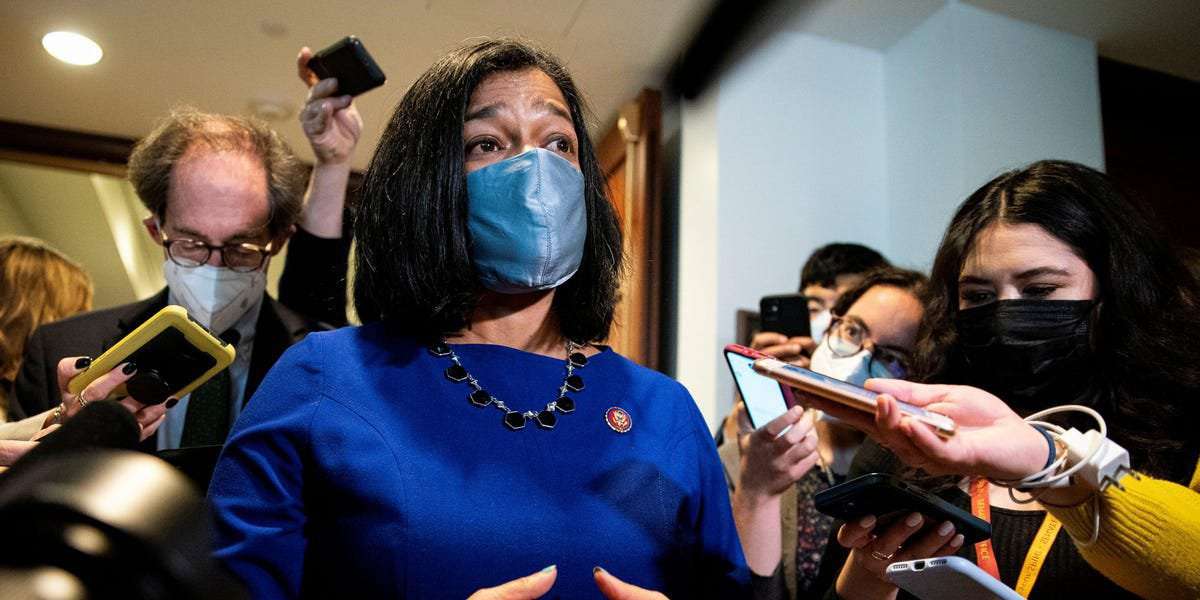The Congressional Progressive Caucus endorsed a four-day work week bill.
The bill was first introduced by California Democrat Mark Takano over the summer.
It follows the lead of other countries who have tried shortening their weeks to uplift workers.
Get a daily selection of our top stories based on your reading preferences. Email address Preview By clicking ‘Sign up’, you agree to receive marketing emails from Insider as well as other partner offers and accept our and . Loading Something is loading. We are so sorry! We bumped into a system failure and couldn’t take your email this time. Thank you for signing up! See all newsletters
Progressives in Congress are lining up behind a bill that would shrink a regular week of work from 40 hours to 32 — bringing the four-day work week to America.
The Congressional Progressive Caucus just endorsed the aptly named "32-Hour Workweek Act," according to a statement from Rep. Mark Takano, the Democrat representing California's 41st district. The caucus, comprised of nearly 100 legislators, is a key progressive voice and has made its power known during recent infrastructure negotiations.
"For far too long, workers across this country have been forced to put in longer hours as their wages barely budge," chair of the caucus and Washington state Democrat Rep. Pramila Jayapal, said in a statement.
In the US, wages have been declining for five decades, with economic growth increasingly benefiting workers less. As workers demand more from work, and refuse to work in positions that don't suit their needs, a four-day workweek has caught traction. The shorter week has been shown in other countries to keep business booming and workers happier. Its implementation into law — or at least the mainstream — could mark a pivotal moment in America's rethink of work.
"It is past time that we put people and communities over corporations and their profits — finally prioritizing the health, wellbeing, and basic human dignity of the working class rather than their employers' bottom line," Jayapal said. "The 32-hour work week would go a long way toward finally righting that balance."
Takano first introduced the act in July, with endorsements from leading labor groups like the AFL-CIO, SEIU, and UFCW.
The idea of a four-day work week has started catching on amidst America's great rethinking of the role work plays in our lives. Joe O'Connor, the global pilot program manager for the Four Day Week campaign, told Insider's Stephen Jones that momentum for the shortened week has been "incredible" in the last few months. O'Connor is the coordinator of a four-day week pilot in Ireland, with the US and Canada next up for trials.
In Iceland, a pilot of the four-day workweek didn't lead to a drop in productivity — but it did result in workers reporting less stress and burnout, and higher levels of positivity and happiness. Countries like Scotland, Japan, and Sweden are all trialing the concept.
The UAE also just announced that federal employees will be moving to a four-and-a-half day work week starting in the new year, with the weekend now kicking off at noon on Fridays; they said that it will "boost productivity and improve work life balance."
But Insider's Chris Weller has argued that the four-day workweek remains a fantasy in America, due in part to the country's organizational structure; employers would have to rethink how they assess workers, homing in on results rather than presence. Notably, though, the last six or so months have seen Americans rethinking what they want out of work, and employers scrambling to adjust — whether through higher wages, or, yes, shorter workweeks.
As Takano said in his statement on the act: "After a nearly two-year-long pandemic that forced millions of people to explore remote work options, it's safe to say that we can't – and shouldn't – simply go back to normal, because normal wasn't working."

Hesquiat on December 8th, 2021 at 04:12 UTC »
Canadian here. During covid my company went into survival mode and requested employees work a 4 day 32 hour week. As things thawed back out and we needed to resume normal operations it turned out the 4 day week was very popular. So we listened to our staff and settled on 4 x 9 = 36. It really hasn’t made a noticeable difference in terms of output from the previous 5 day 40 hour work week. And in terms of employee satisfaction and retention and overall positive vibes in the office, having every weekend be a long weekend has been epic. Plus it leaves an empty office on fridays for us in management to have some peace and quiet to tackle loose ends. The 4 day work week has been a huge success for my engineering firm in Canada, I don’t see why it couldn’t work for companies in at least some industries in the USA.
Mother_Welder_5272 on December 8th, 2021 at 03:41 UTC »
Lmao imagine saying this as if it was a bad thing.
Dornitz on December 8th, 2021 at 00:24 UTC »
Would be happy to pilot it as a federal employee for the rest of the country wink wink.